The Ultimate Guide: Choosing The Best Water Softener System
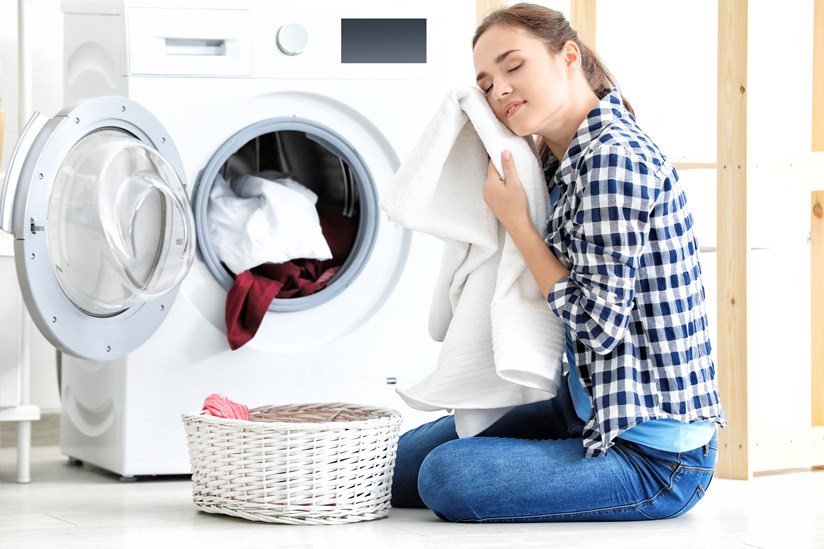
Transform Your Home with a Water Softener
Hard water is a common problem affecting millions of households, often unnoticed until it causes significant damage or discomfort. If you’ve ever dealt with stubborn limescale buildup on your faucets, dry skin after a shower, or dingy laundry that never seems clean, it’s time to consider the benefits of installing a water softener. This guide will help you understand water softeners. It covers their features, benefits, and why a premium system is important for your home.
LEARN MORE ABOUT WATER SOFTENER SYSTEMS FOR YOUR HOME
Understanding Hard Water: What It Is and Why It Matters
Hard water contains elevated levels of minerals such as calcium and magnesium. While these minerals are harmless for consumption, they can wreak havoc on your plumbing, appliances, and even your skin and hair. The consequences of hard water include:
- Clogged Pipes: Mineral buildup can restrict water flow, leading to costly plumbing repairs. Over time, this buildup can cause corrosion and weaken pipes, necessitating expensive replacements.
- Reduced Appliance Efficiency: Dishwashers, washing machines, and water heaters can lose efficiency and lifespan because of limescale buildup. This not only causes higher energy bills but also leads to frequent repairs or early replacement of these appliances.
- Skin and Hair Issues: Hard water can strip moisture from skin and hair, leading to dryness and irritation. People with sensitive skin or conditions like eczema may find that hard water makes their symptoms worse, causing discomfort.
- Dull and Dingy Laundry: Hard water can leave clothes feeling stiff and looking faded. The minerals in hard water can stop detergents from cleaning fabrics well. This can make clothes look less fresh.
Understanding the impact of hard water is the first step toward improving your home’s water quality.
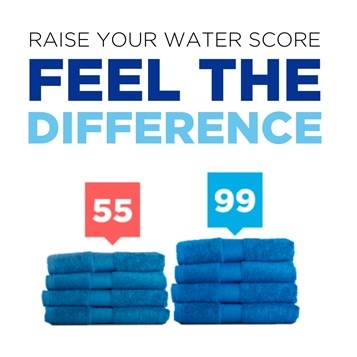
The Science Behind Water Softeners: How They Work
Water softeners use a process called ion exchange to eliminate hardness from water. When hard water flows through the resin tank, sodium or potassium ions replace calcium and magnesium ions. This process creates soft water. Soft water is gentle on skin and hair and works better for cleaning.
Our water softeners use advanced technology. They not only soften your water but also improve its quality. Some key processes include:
- Continuous Regeneration: Our systems regenerate automatically, ensuring a constant supply of soft water without interruption. This means you won’t run out of soft water during peak usage times.
- Highly Efficient Resin: Designed for long-lasting performance, the resin in our water softeners effectively captures and exchanges ions, significantly reducing maintenance needs. The resin can last for years without requiring replacement, making it a cost-effective solution.
Smart Technology: Many modern water softeners have smart technology. This lets you check water usage and system performance from afar. This feature helps you optimize your water softening process, ensuring efficiency.
The Benefits of Installing a Water Softener
Investing in a high-quality water softener yields numerous benefits for your home:
- Protects Appliances: Soft water reduces scale buildup, which prolongs the life of appliances like dishwashers and water heaters. This can save you thousands of dollars in repairs and replacements over time.
- Saves on Energy Costs: Softened water heats more efficiently, potentially lowering your energy bills. According to studies, households with water softeners can see energy savings of up to 30%.
- Improves Cleaning Efficiency: Soaps and detergents clean better in soft water. This means you can use less and get better results in your laundry and dishes. This not only saves you money on cleaning supplies but also reduces environmental impact.
- Improves Comfort: Say goodbye to dry skin and brittle hair; soft water is gentler and more nourishing. Many users notice clear improvements in their skin and hair after switching to soft water. This change makes showers and baths more enjoyable.
- Better Taste: If your drinking water comes from a well or city supply, softening it can improve its taste and quality. Soft water can be more palatable and enjoyable to drink.
With a water softener, you can enhance your quality of life by transforming everyday tasks into effortless experiences.
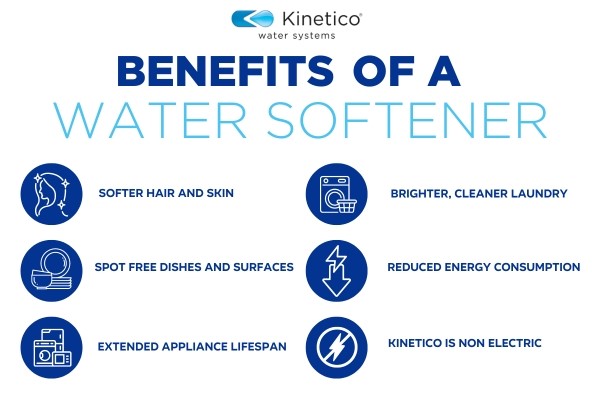
Choosing the Right Water Softener for Your Home
When selecting a water softener, consider the following factors to ensure you choose the best option for your household:
- Water Usage: Assess your household's daily water consumption to determine the appropriate capacity for your softener. Larger families or homes with high water usage may require a system with a higher grain capacity.
- Water Hardness Levels: Testing your water's hardness is crucial. A higher hardness level may require a more robust system. Many water testing kits are available, or you can contact a local water quality expert for assistance.
- Installation Space: Consider where you’ll install the water softener. Compact models can fit in tighter spaces while still delivering powerful performance. Ensure that there’s adequate space for maintenance and salt refills.
- Additional Features: Look for advanced features such as programmable settings, smart technology, and monitoring capabilities. These features can enhance the efficiency and convenience of your system.
- Budget: Determine your budget for purchasing and installing a water softener. While premium systems may require a higher initial investment, they often provide long-term savings and benefits.
Selecting a system tailored to your specific needs is essential for ensuring optimal efficiency and effectiveness.
The Importance of Professional Installation
While some systems may offer DIY installation, professional installation is recommended for optimal performance and longevity. Trained technicians understand the nuances of water systems, ensuring:
- Correct Sizing: Professionals assess your home's specific needs to provide the right size and model for optimal performance. This prevents issues related to undersized or oversized systems.
- Efficient Setup: Proper installation maximizes system efficiency, preventing potential issues that can arise from improper setup. A poorly installed system may not function correctly, leading to wasted resources and ineffective softening.
- Safety and Compliance: Professional installers know local plumbing codes and rules. They make sure your installation meets all safety standards.
Choosing a professional installation means peace of mind, knowing your system will work efficiently from day one.
SPEAK TO A WATER EXPERT NEAR YOU
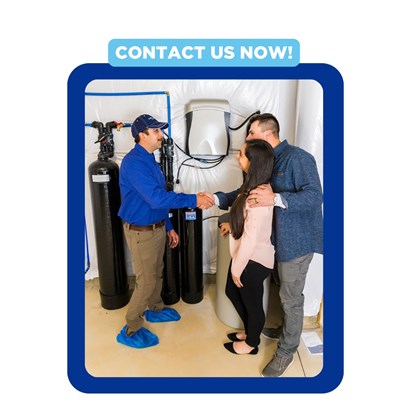
Maintenance and Care for Your Water Softener
To keep your water softener operating at peak performance, regular maintenance is essential. This includes:
- Regular Salt Refills: Monitoring your salt levels ensures the system continues to function effectively. Depending on water usage and system size, you may need to refill salt every few weeks.
- Resin Replacement: You may need to replace the resin every few years. This depends on how often you use it. This keeps it working well. Regular inspections by a professional can help you determine the right schedule.
- System Inspections: Routine checks by a qualified technician can identify potential issues before they become major problems. Regular maintenance visits can prolong the life of your system and ensure it runs optimally.
- Cleaning the Brine Tank: Periodically clean the brine tank to prevent buildup of salt residue and other debris. This ensures efficient operation and prevents odors.
By investing in regular maintenance, you can extend the life of your water softener and ensure consistent performance.
Environmental Benefits of Water Softeners
In addition to personal and household benefits, using a water softener can have positive environmental impacts. Softer water means you need fewer harsh chemicals in cleaning products. It also uses less energy for heating water. This helps lower your carbon footprint.
- Less Soap and Detergent: With soft water, you need less soap and detergent for cleaning. This helps reduce chemical runoff into the environment. This not only saves you money but also promotes a healthier ecosystem.
- Lower Energy Consumption: Soft water heats more efficiently, which can lead to lower energy consumption in your home. This contributes to reduced greenhouse gas emissions from energy production.
- Conservation of Water Resources: By improving the efficiency of your appliances, water softeners can help conserve water. Efficient appliances use less water, further minimizing your environmental impact.
This aligns with a more sustainable lifestyle while still achieving the cleanliness and efficiency you desire in your home.
INQUIRE ABOUT YOUR WATER SOFTENER SOLUTION FOR YOUR HOME
Cost Considerations for Water Softeners
The initial investment in a water softener can vary based on system features, capacity, and installation requirements. However, the long-term savings and benefits often outweigh these costs.
- Average Costs: The price of water softeners can vary. Premium systems with advanced features usually cost between $1,000 and $3,000. This price includes installation. High-quality models are typically more efficient, resulting in lower long-term operating costs.
- Long-Term Savings: Homeowners can save money on energy bills, appliance repairs, and cleaning supplies. This makes the initial cost a good investment. Many users report significant savings over time, which can offset the initial purchase price.
Financing Options: Many providers have financing options and promotions. This makes it easier to manage your budget while improving your quality of life. Consider exploring financing plans that fit your financial situation and allow for manageable monthly payments.
What to Expect During the Installation Process
When you decide to install a water softener, here’s what you can expect from the process:
- Initial Consultation: A water expert will assess your home’s needs. They will look at water usage, hardness levels, and good spots for installation. This ensures a personalized approach to selecting the right system.
- System Selection: Based on the assessment, you’ll choose the water softener that best fits your requirements and budget. You’ll receive detailed information about each option, including features and benefits.
- Professional Installation: Trained technicians will install the system, ensuring all connections are secure and the unit is completed efficiently. This means ensuring that you complete all plumbing connections correctly. The team should also set up the system as the manufacturer says.
- Testing the System: After the technician completes the installation, he will test the system. This ensures it works correctly and efficiently. This final check ensures that you can enjoy the benefits of soft water immediately.
Post-Installation Guidance: After installation, you will get information on how to use and care for your water softener. This includes tips for checking salt levels and planning maintenance checks.
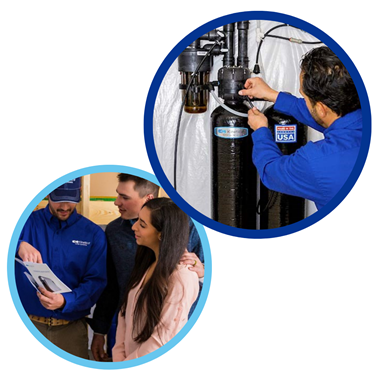
Invest in Your Home’s Water Quality Today
Installing a high-quality water softener is an investment in your home, your health, and the environment. A water softener offers more than just comfort. It can protect your appliances and improve your daily routines. It also helps you live a more sustainable lifestyle.
If you're tired of limescale buildup, a water softener can help. It can also save you money on energy costs. Plus, it improves water quality for your family. Overall, a good water softener makes your home cleaner and more comfortable.
Don’t let hard water dictate the quality of your life. Explore the benefits of water softeners today and take the first step toward better water quality for your home. Experience the Kinetico difference—your journey to softer, cleaner water starts now!
SCHEDULE A FREE WATER TEST WITH A KINETICO WATER EXPERT
FAQs About Water Softeners
1. How do I know if i need a water softener?
If you have problems with hard water, like limescale buildup, dry skin, or dull laundry, a water softener may help your home. Testing your water hardness is the most definitive way to determine your needs.
2. What type of maintenance do water softeners require?
Regular maintenance includes monitoring and refilling salt levels, periodic resin replacement, and routine inspections to ensure the system is functioning optimally.
3. Can I install a water softener myself?
Some systems let you install them yourself, but it’s usually better to hire a professional. This helps ensure proper setup and meets plumbing codes.
4. How long does a water softener last?
With proper maintenance, most water softeners can last between 10 to 15 years. Regular inspections and maintenance can extend the life of your system.
5. Are water softeners environmentally friendly?
Yes, water softeners can cut down on harsh cleaning chemicals. They also lower energy use, helping create a more sustainable lifestyle.
By integrating extensive information on the benefits, maintenance, and installation of water softeners, this landing page aims to attract and convert potential customers effectively. This guide aims to position Kinetico as a leader in water-softening technology. It will also highlight the importance of quality water in all areas of life.
